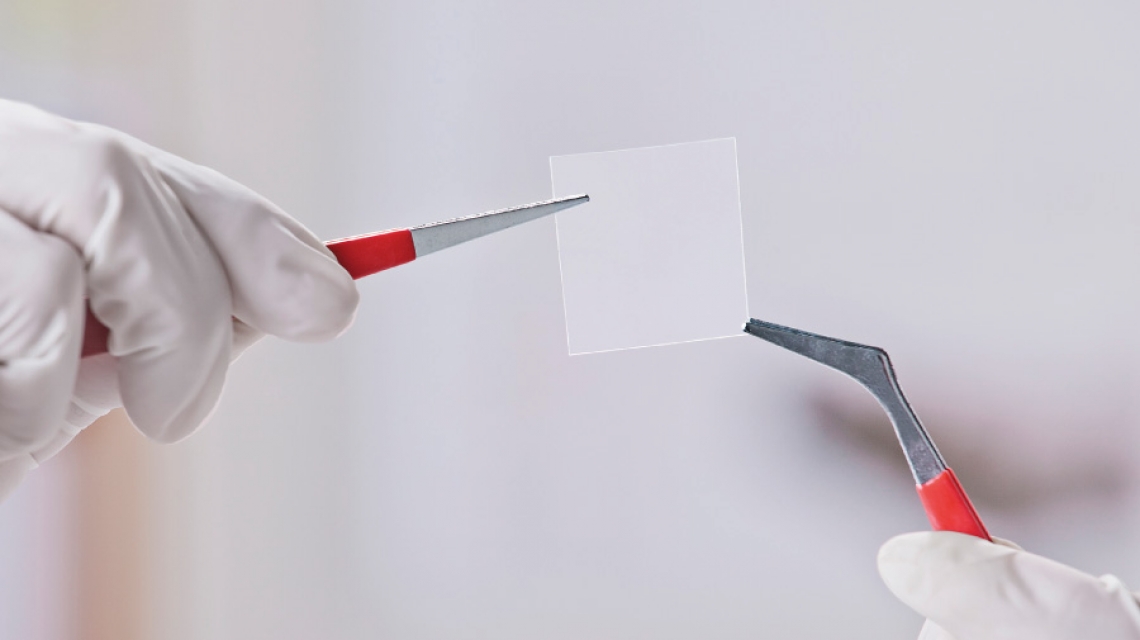
Masdar Institute of Science and Technology will be significantly bolstering the UAE’s leadership in evolving applications of a ‘wonder material’ known as graphene with three new collaborative projects that have industry-relevant applications, as announced during the Abu Dhabi Sustainability Week (ADSW).
Masdar Institute has partnered with the institute credited with isolating graphene – the University of Manchester – in a collaborative research engagement focused on “pre-competitive” research in graphene and related 2D materials for sensors, membranes and composites for the aerospace, defense and energy markets.
As part of the accord, three collaborative graphene projects will be kicking off this month to support the development of valuable advanced materials innovations for the UAE’s nascent high-tech industries.
One of the innovative projects is focused on the development of a new type of low-density foams based on graphene which has a number of various applications in engineering. Using 3D printing technologies, this project aims to fabricate the structure of proposed foam to varying degrees of thickness to test it for the proposed applications.
Dr. Rashid Abu Al Rab, Associate Professor of Mechanical Engineering, and Dr. Ahmed Al Jaberi, Assistant Professor of Materials Science and Engineering, will be leading the project from Masdar Institute’s side, while Dr. Brian Derby, Professor of Material Science and Dr. Suelen Barg, Lecturer in Structural Materials, will be leading the four-year project on behalf of the University of Manchester.
“This project has a great potential to take graphene from a 2D material to a 3D material using developed structures that hold the promise of providing ultra-light components with little effects on strength. As we know, graphene is a very strong, very light material and if we can adapt it into 3D components, this can contribute greatly to many different industries like aerospace and robotics,” Dr. Al Jaberi explained.
“If successful, we can make a major part of an airplane with the same strength as the conventional airplane parts, but at fraction of the weight. This project can also address upscaling graphene production, since we will be looking at the best ways to utilize graphene to get the desired outcomes,” he added.
Graphene is made of a single layer of carbon atoms. Its unique structure – a repeating pattern of hexagons – lends it some very unique physical and electromechanical characteristics. It is said to be the strongest material in the world and electrons move through graphene so quickly they appear to be massless. These characteristics result in a material that has the power to transform electronics, computing and many other technologies.
A second project announced as part of the collaboration between the two institutes looks to enhance a technology that helps the UAE overcome its water scarcity issues. Led by Masdar Institute’s Dr. Linda Zou, Professor of Chemical and Environmental Engineering, and Ahmed Al Hajaj, Assistant Professor of Chemical Engineering, the project aims to incorporate graphene nanosheets with ion exchange membranes, which are used in water desalination and treatment technologies to produce freshwater. Integrating graphene in this way can leverage the material’s electrochemical properties to increase ion exchange capacity. The University of Manchester’s Dr. Gyorgy Szekely, Lecturer in Chemical Engineering at the School of Chemical Engineering and Analytical Science, and Professor Peter Budd, from the School of Chemistry, will work collaboratively on this project.
“In order to meet the rapidly increasing demand for freshwater in UAE and many parts of the world, there is a need to develop a more diversified approach to provide water security, such as desalination and wastewater treatment technologies. Ion exchange membranes play an important role in the emerging desalination technology, but current systems have poor electrical conductivity, which results in increased energy consumption of the process. This proposal aims to conduct a systematic study and develop the more efficient graphene-enabled ion exchange membranes,” Dr. Zou explained
Water is one of the industries targeted in the UAE Innovation Strategy and is also a critical sector due to the scarcity of natural freshwater resources in the UAE.
The unique physical properties of carbon nanomaterials like graphene, carbon-nanotubes, and their derivatives, which include extreme strength, flexibility, thermal and electronic conduction, and chemical stability, make it an ideal material for deployment in hostile environments. The third project launched as part of the collaboration seeks to capitalize on this fact by using inkjet printers to print micro-sensors made of graphene for use in energy and defense applications.
The innovative and cross-disciplinary undertaking involves Dr. Ibraheem Al Mansouri, Assistant Professor of Microsystems Engineering, Dr. Amal Ghaferi, Assistant Professor of Materials Science and Engineering and Dr. Irfan Saadat, Professor of Microsystems Engineering, from the Masdar Institute side, and Dr. Aravind Vijayaraghavan, Lecturer in Nanomaterials, and Dr. Michael Turner, Professor of Materials Chemistry, from the University of Manchester. By adapting graphene for use in inkjet printers, this project aims to allow it to be cheaply and easily deployed on many different surfaces.
Graphene is expected to be integral to the next innovations in wearable electronic devices, aviation components, broadband photodetectors, radiation-resistant coatings, and energy storage. According to research in ‘Graphene Markets, Technologies and Opportunities 2014-2024,’ the markets for graphene will grow from around US$20 million in 2014 to more than US$390 million in 2024.
Zarina Khan
Senior Editor
21 January 2016